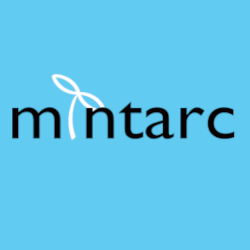EtherCalc
From Mintarc Forge
EtherCalc is an open-source, web-based collaborative spreadsheet application designed for real-time editing and data sharing. It serves as a lightweight and decentralized alternative to proprietary tools like Google Sheets or Microsoft Excel, offering users the ability to create, edit, and share spreadsheets directly from a browser without requiring account sign-ups or installations. Each spreadsheet in EtherCalc is assigned a unique URL, which can be shared with collaborators for simultaneous access and editing. This simplicity and accessibility have made it a popular choice for small teams, remote collaboration, and quick data management tasks.
EtherCalc originated as a fork of SocialCalc, inheriting its focus on lightweight functionality and collaborative capabilities. Its primary feature is real-time collaboration, where multiple users can edit the same spreadsheet simultaneously. Changes are immediately visible to all participants, with visual indicators (such as cell borders) showing which cells are being edited by others. This makes EtherCalc particularly suitable for distributed teams working across different time zones or environments where rapid updates are critical.
The platform supports essential spreadsheet functionalities, including formatting options, mathematical functions, graphing capabilities, and version history. Users can also export spreadsheets in formats such as CSV or HTML for integration with other tools or platforms. EtherCalc's interoperability extends to importing data from Microsoft Excel files and JSON formats, making it adaptable for various workflows. Additionally, it can be integrated into larger systems through its REST API or used as an npm module for JavaScript developers seeking to embed spreadsheet functionality into custom applications.
One of EtherCalc’s defining characteristics is its decentralized architecture. Unlike centralized services that store all user data on proprietary servers, EtherCalc allows organizations or individuals to host their own instances. This self-hosting capability ensures complete control over data storage and privacy while enabling customization of features like design modifications or hosting duration limits. Platforms like Sandstorm and Cloudron also support EtherCalc deployments, enhancing its accessibility for users who prefer secure self-hosted environments.
Despite its strengths in collaboration and decentralization, EtherCalc has notable limitations regarding security and maintenance. While it offers basic privacy measures—such as random URLs that act as access keys—it lacks advanced features like password protection or encryption by default. This makes it unsuitable for handling sensitive or confidential data unless deployed within a secure, private network. Furthermore, EtherCalc has seen limited active development in recent years, raising concerns about potential vulnerabilities or compatibility issues over time.
